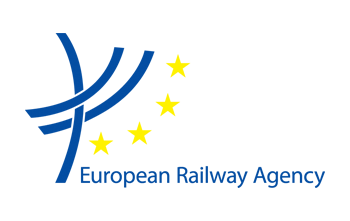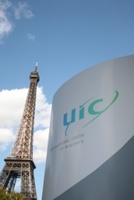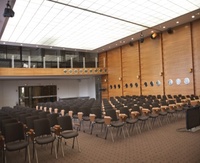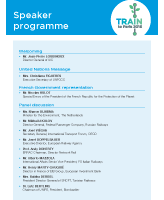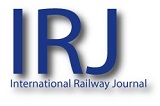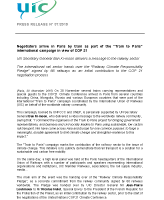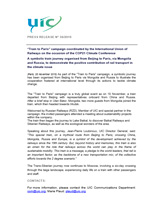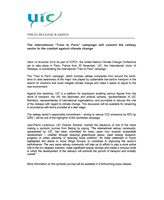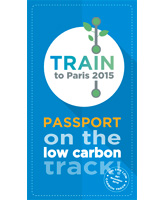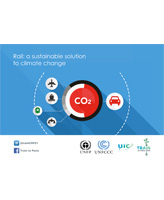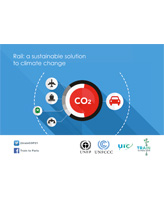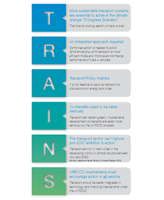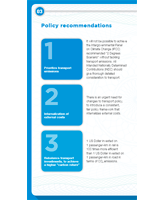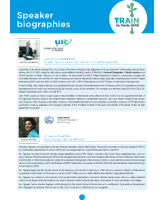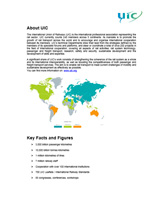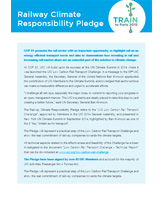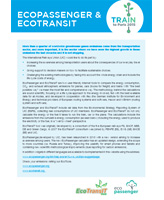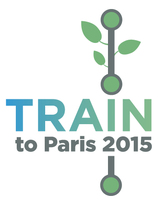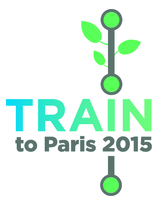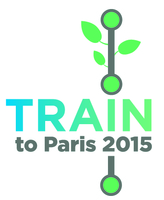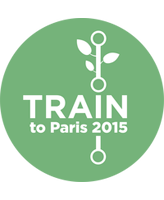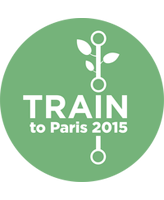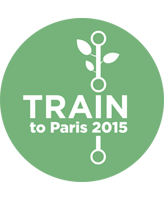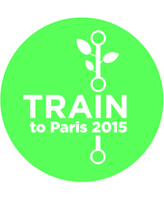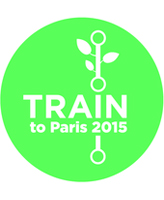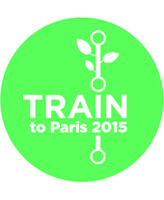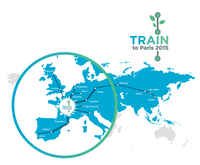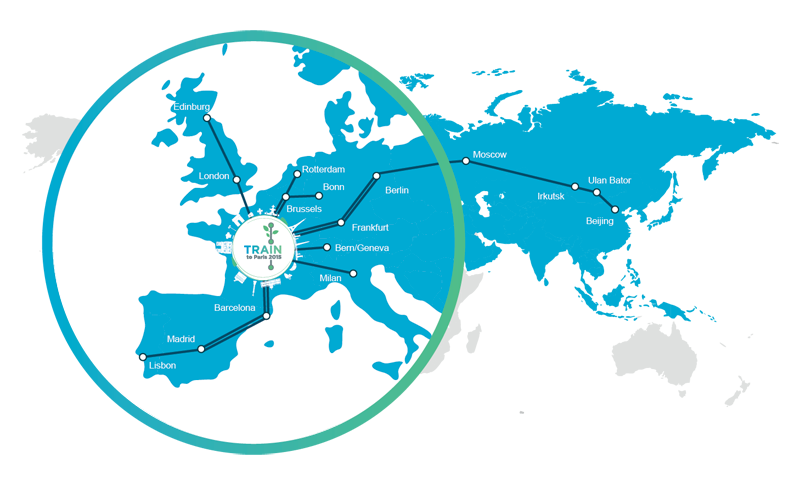
Content
Cooperation
Follow UNFCCC here:
- Website: http://www.unfccc.int
- Twitter: https://twitter.com/UNFCCC
- Chistiana Figueres Twitter: https://twitter.com/CFigueres
- Facebook: https://www.facebook.com/UNclimatechange
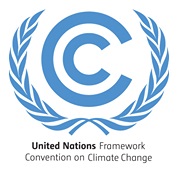 The United Nations Framework Convention on Climate Change, with Secretariat in Bonn, Germany is an international treaty agreed on during the United Nations Conference on Environment and Development (UNCED) in Rio de Janeiro in June 1992. The head of the secretariat has been Christiana Figueres, from Costa Rica, since 2010.
The United Nations Framework Convention on Climate Change, with Secretariat in Bonn, Germany is an international treaty agreed on during the United Nations Conference on Environment and Development (UNCED) in Rio de Janeiro in June 1992. The head of the secretariat has been Christiana Figueres, from Costa Rica, since 2010.
The purpose of the Convention is to “stabilise greenhouse gas concentrations in the atmosphere at a level that will prevent dangerous human interference with the climate system." And that "such a level should be achieved within a time-frame sufficient to allow ecosystems to adapt naturally to climate change, to ensure that food production is not threatened, and to enable economic development to proceed in a sustainable manner."
UNFCCC Convention was signed by 194 countries, proving the universal consensus that actions are required to fight climate change.
Follow UNEP here:
- Website: http://www.unep.org
- UNEP Twitter: https://twitter.com/unep
- Achim Steiner Twitter: https://twitter.com/asteiner
- UNEP Facebook: https://www.facebook.com/unep.org
- UNEP Instagram: https://instagram.com/unenvironment/
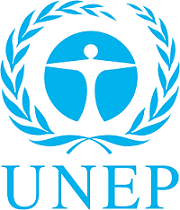 UNEP partnership with UIC has always been strong and during COP15, Achim Steiner even took the “Train to Copenhagen”.
UNEP partnership with UIC has always been strong and during COP15, Achim Steiner even took the “Train to Copenhagen”.
The United Nations Environment Programme, with headquarters in Nairobi, Kenya, is an international agency created in June 1972, aiming to carry out environmental best practices in the following fields: atmosphere, ecosystems both marine and on Earth, governance and green economy. The present Executive Director of UNEP is Achim Steiner.
The United Nations Environment Programme (UNEP) is the voice for the environment in the United Nations system. It is an advocate, educator, catalyst and facilitator, promoting the wise use of the planet’s natural assets for sustainable development. The mission of UNEP is to provide leadership and encourage partnership in caring for the environment by inspiring, informing and enabling nations and peoples to improve their quality of life without compromising that of future generations. UNEP strongly supports sustainable transport initiatives that contribute to a cleaner, greener future.
Follow RATP here:
- Website: http://www.ratp.fr
- RATP Group Twitter: https://twitter.com/GroupeRATP
 The RATP is associated with the ‘Train to Paris’ event, since it is the natural link between the conventional rail system and the city. We are proud, therefore, to have been in a position to transport large numbers of guests between mainline stations in Paris and the UIC headquarters using ‘clean’ modes of transport, including our electrically-powered and hybrid buses. These are testament to the ambitious plan of the RATP to operate a 100% ecological fleet of buses by 2025.
The RATP is associated with the ‘Train to Paris’ event, since it is the natural link between the conventional rail system and the city. We are proud, therefore, to have been in a position to transport large numbers of guests between mainline stations in Paris and the UIC headquarters using ‘clean’ modes of transport, including our electrically-powered and hybrid buses. These are testament to the ambitious plan of the RATP to operate a 100% ecological fleet of buses by 2025.
Since 2014, the RATP has been committed to major technological and ecological evolution, with the ultimate objective of converting most of its fleet of 4,500 buses to electric power by 2025: this is the Bus2025 Plan. This ambitious project reflects the desire of the Syndicat des Transports d’Île-de-France (STIF) to remove diesel-powered buses from the Île-de-France region.
The Bus2025 Plan is aimed at creating a fleet of buses with 80% of them being electrically powered and 20% of them being powered by biogas. This arrangement will enable the RATP to eliminate 80% of greenhouse gas emissions from the bus network and 50% of its carbon footprint, thus becoming the world leader in ‘clean’ buses.
Electrical energy is also the power source for our Metro and RER trains and for many years the RATP has been making strenuous efforts to modernise its fleet. Progressive renewal of rolling stock is a fundamental factor in our policy of reducing electrical power consumption, since the energy performance of these vehicles is far in advance of earlier generation equipment. A few facts about electrically-operated braking: in 2015, 77% of lines are using regenerative braking and 81% of trains are fitted with regenerative braking systems, the ultimate objective being to ensure that 100% of the Metro fleet is equipped with regenerative braking. To go further, the RATP is employing eco-driving on its automated Metro lines: on Line 14, modification of the automatic train operating system and integration into the control software of energy conservation objectives has yielded a reduction of 16% per year of the electrical energy consumed by the 25 trains in the fleet.
In addition to vehicles, the RATP is aiming to be an exemplary company in the sustainable city concept. In fact, the RATP is pursuing a voluntary and innovative environmental policy in order to improve its environmental performance. As part of this policy, transport areas will all be equipped with LED lighting by 2016, which will cut electrical energy consumption by 50%. Technical, industrial and service industry buildings are also subject to a policy of energy efficiency and waste management.
Creative brief
Introduction
The Train to Paris project concept takes inspiration from the positive experience of the UIC “Train to Copenhagen (Climate express)” realised by UIC, CER and their members in December 2009 for the UNFCCC COP15. The UIC was created in 1922 to harmonise and improve conditions for railway constructions and operations through the world and now has 200 members across all 5 continents.
That initiative can be considered a success, for many reasons, both from a communication and a “political” point of view. It has been appreciated by key stakeholders like UN, EU officials, national governments and NGOs and it has contributed to highlight in the media and the general public the positive contribution of the railway business in fighting climate change, more than any other campaign, conference or press release organised in the previous years.
For more info, please check:
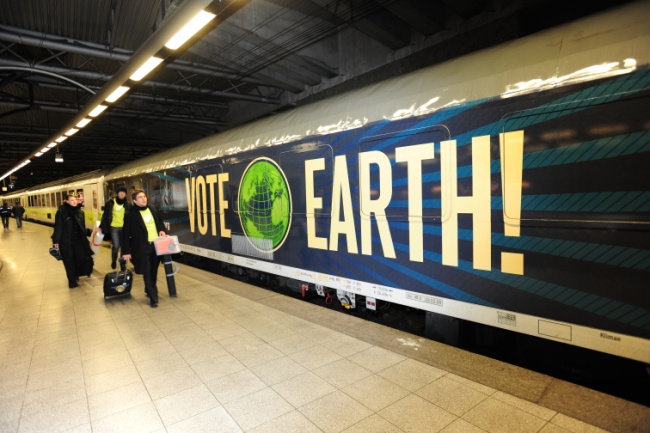
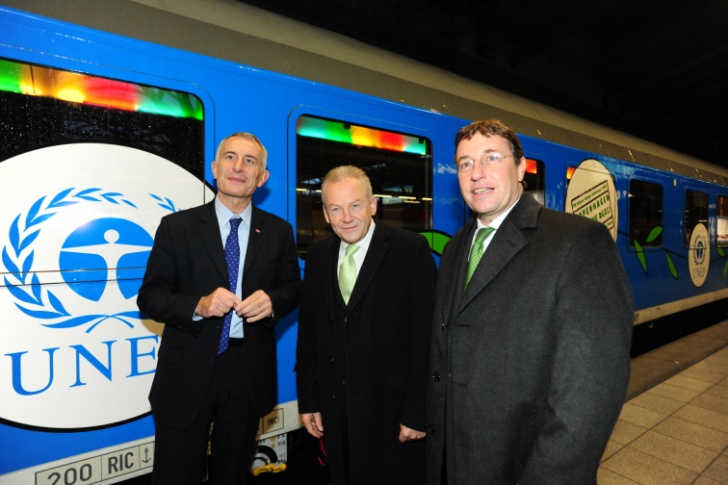
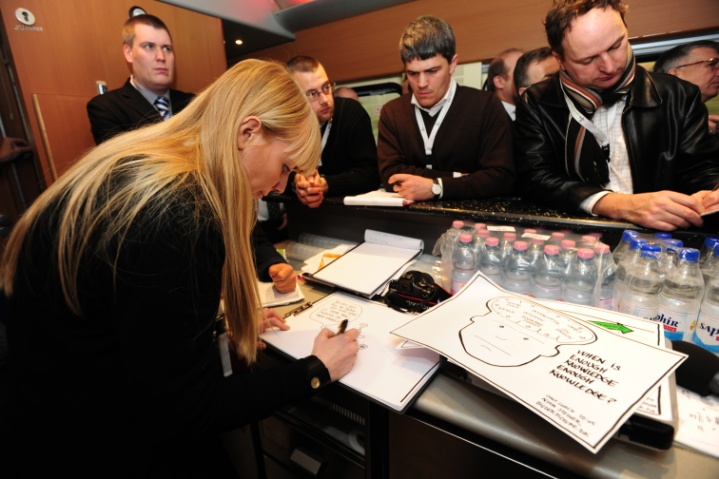
Train to Paris
The UIC co-ordinated campaign “Train to Paris” that will bring thousands of delegates including national governments, NGOs, decision-makers and journalists from across Europe and Asia by train to Paris for the COP21 United Nations Conference on Climate Change to be held end of 2015 in Paris. The campaign will highlight to the general public and the authorities rail as the back bone of sustainable transport and raise awareness of the importance of developing more sustainable transport systems.
This event will examine the role of rail and the wider issue of sustainable transport as part of the solution to address climate change.
Speakers and guests for the evening event and on the trains were selected to balance representation from a range of constituencies (passenger/HS/freight, private/public sector, IGO/NGO, gender, geography, etc.)
Together let’s keep transport on the low carbon track, let’s build a more sustainable future.
Let’s take the Train to Paris!
For more info, please check:
www.traintoparis.org
Facebook page: Train to Paris
Twitter: @trainCOP21
Instagram: traintocop21
Key messages
-
More sustainable transport systems are essential to achieve the climate change 2 Degrees Scenario – the time for picking sector winners is over
-
An integrated approach required – combined action is needed to avoid GHG emissions, shift transport to most efficient mode and improve environmental performance of fuels + vehicles
-
Transport Policy matters – it is not feasible to devolve transport to discussions on energy and cities
-
Co-benefits needed to be taken seriously - Transport can benefit greatly if sustainable development co-benefits are taken more seriously by the UNFCCC process
-
The transport sector can’t ignore pre-2020 ambition & action – Transport activity in many cities in the developing world will almost double between now and 2020
-
UNFCCC mechanisms must encourage action in all sectors - Transport should be better integrated in technology and financing mechanisms under the UNFCCC
Timeline & main stops
| Organizer | Origin |
|---|---|
| DB | Berlin via Frankfurt |
| Thalys | Bonn via Brussels |
| NS | Rotterdam via Brussels |
| FPC / RZD | Beijing /Ulan Bator via Moscow |
| Eurostar | London |
| SBB/Lyria | Bern / Geneva |
Most trains will arrive in Gare du nord or Gare de l’est
from the afternoon Welcome at UIC
Key note speeches
Signing ceremony
High Level panel discussion: Reception at Pullman Hotel to 11.pm
Ideas & recommandations
Spread messages about a sustainable future for all generations, for a more sustainable future where rail plays a crucial role
- Illustrate best practises
- Illustrate keywords
- Illustrate a glossary
- Illustrate the event live at UIC
- Illustrate the event on trains/in stations
- Illustrate the event for « posterity »
- Regular basis collaboration for the website and/or social networks
- Live artist for the 28th or on the trains
- Live artist doing a frieze during the event or one shot performances
- Art works that could go on each train before the journey
- Artistic photos or videos on the trains, during the live event for scenography
Perks
- Visibility on an international level: on the trains, website, social media, media, etc.
- Visibility with the general public
- Visibility during high level events
- Durability of the deliverables with members, the UIC
- Long term commitment for other events (List of UIC events: http://uic.org/com/?page=banners-wall)
Framework
Deadlines will depend on the project, particularly if it is a regular basis project.
For propositions: By the end of Summer 2015 or before
For deliverables: November 28 or before
Requirements
Content in English and/or in the local languages if needed
Give authorization to UIC to translate content if needed
Disclaimer
Acceptance
The use of the Train to Paris’ website implies full acceptance of the following terms and conditions.
Intellectual property
All trademarks and logos displayed on the website www.traintoparis.org are the property of the International Union of Railways and protected by the intellectual property laws applied in France. They may not be used or copied in any way without prior and express permission from the International Union of Railways, which reserves the right to prosecute any act infringing its intellectual property rights.
The International Union of Railways provides links to third-party and external websites, for which it disclaims any responsibility. The insertion of these links does not in any way imply the approval of or an existing partnership with any of these sites. In no event shall the International Union of Railways be held liable for the referencing of these sites on its website. The insertion, on external sites, of hyper links to the Train to Paris’ website is subject to prior and express permission from the International Union of Railways.
The International Union of Railways consequently assumes no liability for the content or the use of:
![]() Sites linked to from the Train to Paris’ website
Sites linked to from the Train to Paris’ website
![]() Sites containing a link to the Train to Paris’ website
Sites containing a link to the Train to Paris’ website
Security
It is the responsibility of all Internet users consulting the Train to Paris’ website to avoid infecting the site with viruses of any description.
The International Union of Railways assumes no liability for any direct or indirect damages arising from access to or use of the site www.traintoparis.org or the information contained on it.
Personal information
Personal information obtained via the discussion forum on the Train to Paris’ website may not be used for purposes other than to contribute to the proposed discussion topics.
A moderator may change or remove, prior to its being displayed on the discussion forum, any posting that is irrelevant to the topic addressed or that is unlawful.
Users have the right to access, change, correct or remove any of their personal information (as provided for by Article 34 of the French Data Protection Law of 6 January 1978). Users may ask for their comments on the discussion forum to be removed at any time by sending a message to webmaster at uic.org or by writing to UIC – Legal Department, 16 rue Jean Rey, 75015 Paris.
Site access
The International Union of Railways reserves the right to suspend, interrupt or change the site access hours without prior notice.
The hardware required to connect to the Internet, as well as any costs associated with consultation of the site, shall be borne exclusively by the Internet user.
Legal compliance
The Train to Paris’ website has been created and edited in compliance with the laws applied in France. In accessing this website, Internet users resident outside France shall ensure that they are in compliance with the locally-applicable legislation relating to the use and content of this website.
Liability
The Train to Paris assumes no liability whatsoever for any direct or indirect damages arising from the use, access or inability to access the Train to Paris’ website. Neither shall the Train to Paris be held liable for the risks related to the completeness, accuracy, suitability or topicality of the information.
The costs and expenses incurred by the Train to Paris due to any request resulting from the user’s breaching the present terms of use or in relation to the user’s site use shall be assumed exclusively by the user.
Other information
The website’s content management system software is SPIP.
The website’s search engine software is mnoGoSearch.
The site www.traintoparis.org is hosted on the International Union of Railways’ server hardware.
Amendments to the terms and conditions of use
The International Union of Railways reserves the right to amend the present terms and conditions of use without prior notice. It is users’ responsibility to consult the terms and conditions on a regular basis.
Credits
Editor:
International Union of Railways
16 rue Jean Rey 75015
Paris
Publication/hosting:
International Union of Railways
16 rue Jean Rey 75015
Paris
FAQ
Frequently Asked Questions
What is the Paris climate change summit (COP21)?
From November 30 to December 11, 2015 high level representatives including Ministers and State Leaders will meet in Paris for the United Nations Climate Conference COP21. The talks are the latest in an annual series of UN meetings that trace their origins to the 1992 Earth Summit in Rio, which aimed at coordinating international action against climate change.
COP21 will be a crucial conference; it is expected to agree a new landmark legal agreement on the climate, applicable to all countries, with the aim of keeping global warming below 2°C. France will therefore be playing a leading international role to ensure points of view converge and to facilitate the search for consensus by the United Nations, as well as within the European Union, which has a major role in climate negotiations. (Source: http://www.cop21.gouv.fr/)
What is climate change?
Climate change is a long-term significant change in weather patterns, including an increase in average temperature and more frequent occurrence of extreme weather events. This is happening due to a large increase in Green House Gas (GHG)-emissions from human activity. These gasses accumulate in the atmosphere, which forms a protective layer around the earth (including different types of air and gasses) and provides a climate that makes it possible for people, animals and plants to live.
What does "COP21" stand for?
"COP21" is the official name of the Paris climate change summit — the 21st Conference of the Parties (COP) under the United Nations Framework Convention on Climate Change (UNFCCC). The COP is the highest body of the UNFCCC and consists of Ministers who meet once a year to discuss developments in the Convention.
Which countries are taking part in the climate change summit, and how many people will be there?
196 countries have signed the United Nations Climate Change Convention. More than 40’000 Officials, Diplomats, Advisers and journalists are expected to attend COP21, joined by Ministers together with Heads of State and Governments.
What does the Summit hope to achieve?
The aim is to reach, for the first time, a worldwide, legally binding agreement that will enable involved actors to combat climate change effectively and provide a turning point to enable future climate resilient & low-carbon development.(Source: http://www.cop21.gouv.fr/)
What progress have we seen on global agreement so far?
In 1992, Governments met in Rio de Janeiro and forged the United Nations Framework Convention on Climate Change. That agreement, still in force, bound governments to take action to avoid dangerous climate change, but did not specify detailed actions. Over the following five years, governments wrangled over what each should do, and what should be the role of developed countries versus emerging economies. Those years of argument produced the 1997 Kyoto protocol requiring cuts in emissions of about 5% by 2012 compared to 1990. Each developed country was allotted a target on emissions reductions. However no targets were set for emerging economies such as China, South Korea and Mexico and there was no limits for international aviation or maritime shipping. Further, the protocol was not ratified by the United States of America.
The Copenhagen climate talks in 2009 were meant to deliver a new legally binding, global deal to replace the Kyoto protocol. Instead, they resulted in a "political agreement" called the Copenhagen Accord. The accord "recognised" the need for countries to tackle climate change, and set the deadline to review existing agreements by the end of 2015.
Why is transportation important in regards to addressing climate change?
Transport alone is causing about one quarter of the global CO2-emissions, and the projections made by international bodies for see a tremendous increase in emissions over the coming decades, particularly in China, India, Russia and other emerging economies.
It is not possible to achieve the "climate change 2 degrees scenario" without action to reduce transport emissions.
How can rail transport make a difference?
Rail is one of the most energy efficient transport modes and thus provides transportation that causes fewer emissions than other transport modes. Travelling by rail is on average 3-10 times less CO2 intensive compared with road or air transport.
Rail transport is responsible for 9% of global transport activity but generates just 3% of transport GHG emissions. However, the rail sector is not resting at its laurels and is working hard to further improve its performance in terms of both energy efficiency and reduced GHG emissions.
In order to tackle climate change and reduce transport emissions it is necessary to "shift" people and goods from road and air transport to rail. Even if road vehicles improve their environmental performance, the projected growth for cars, vans and trucks in the world is so high that a serious modal shift to rail is necessary in order to achieve the climate change 2 degrees scenario.
How are the railways involved with climate change?
UIC, the International Union of Railways, grouping together 240 in the 5 continents and representing the railway sector at the worldwide level, is dedicated to promote rail and develop more sustainable transport systems as part of the solution to climate change. UIC, together with its Members, is daily working to further improve the environmental and sustainability performance of the rail sector, including mitigation and adaptation to tackle the cause and the effects of climate change.
Mitigation actions are concerned with reducing emissions or preventing the causes of climate change. This includes increasing energy efficiency and reducing reliance on carbon intensive technology.
Adaptation includes taking action to cope with the impacts of climate change. For railways this includes making the railway system more resilient to extreme weather events - to operate and survive in a more challenging environment. Adaptation involves actions that can be taken immediately. Read more about UIC’s work on this under Adapting to climate change.
UIC has developed the "Low Carbon Rail Transport Challenge" with official CO2 reduction targets for the world railway sector. The Challenge has been approved by all UIC Members. More details are available on the UIC website. A dedicated Pledge and Signing Ceremony will be held in Paris on November 28th 2015, just before the COP21 negotiations start. UIC together with the International Energy Agency publish an annual handbook, the "UIC-IEA Railway Handbook 2014: Energy Consumption and CO2 emissions of World Railway sector", providing more detailed data on railway and transport emissions: http://www.uic.org/Energy-and-CO2-emissions#documents
What is UIC?
UIC is the International Railway Association.
UIC mission is to promote rail transport at world level and meet the challenges of mobility and sustainable development.
More information at http://www.uic.org/about
How can I calculate my CO2 emissions?
Go to www.ecopassenger.com to check the emissions of your travel! EcoPassenger is a user-friendly internet tool to compare the energy consumption, CO2- and exhaust atmospheric emissions for planes, cars and trains (and trucks) in Europe. With "the best possible way" we mean the most fair and comprehensive way. The methodology behind the calculations are sound scientific, focusing on a life cycle approach to the energy involved, and approved by the European Environment Agency.
What is "Train to Paris"?
The "Train to Paris" campaign, involving railways from around the world, will include a synchronised network of trains arriving in Paris from across Asia and Europe, with some trains originating from Mongolia, Russia & China. The aim of the campaign is to raise awareness of the important role of sustainable transport, and low carbon rail transport, in the solution to both climate change mitigation and adaptation.
A series of high-level and media events are scheduled to take place end of November 2015, including a symbolic welcome of delegations on arrival in Paris and discussions during a high-level Round Table.
Can I board on one of the Trains to Paris?
The special Trains to Paris event trains can be boarded by invitation only. However we encourage all participants to COP21 to carefully consider their carbon footprint and make low carbon transport choices.
Is "Train to Paris" the only initiative organizing trains to reach Paris for COP21?
No, the Climate Express is also organizing trains to reach Paris. http://climate-express.be/en/. This initiative is not organized or coordinated by UIC.
Note that in France, SNCF is launching the Climate Train "Train pour le climat". Keep updated here: www.trains-expo.fr
How do I keep updated about the progress of the campaign?
On this website, on our twitter feed https://twitter.com/trainCOP21, on https://instagram.com/traintocop21/ or https://www.facebook.com/pages/Train-to-Paris/723681641082435
How can I support the "Train to Paris" and the development of low carbon sustainable transport?
Visit our website traintoparis.org, follow us on Twitter @trainCOP21 or on Instagram @traintocop21 and Like the Train to Paris on Facebook to receive all the info about Train to Paris.
You can support the development of low carbon transport through your personal transport choices and engaging with transport policy processes.
Interviews
Jean-Pierre Loubinoux, UIC Director General
José Viégas, Secretary General of the International Transport Forum ITF / OECD
Sabiha Derbel, President Director General of SNCFT (Tunisian Railways)
Luc Lallemand, Chief Executive Officer of Infrabel (Belgium Infrastructure Manager)
Manuel Queiró, President of CP (Portuguese Railways)
Pierre Tessier, Journalist who covered the Pekin-Paris journey (18-28 November 2015)
Introduction
From Copenhagen 2009 to Paris 2015!
Let’s continue our journey!
The UIC co-ordinated campaign “Train to Paris” will bring delegates including national governments, NGOs, decision-makers and journalists from across Europe and Asia by train to Paris for the COP21 United Nations Conference on Climate Change to be held end of 2015 in Paris.
Ready to win with real money slots? Get started by choosing an online casino.
Train to Paris campaign will climax at its main event on 28 November.
Together let’s build a more sustainable future!
Together, let’s take the Train to Paris!
Legal terms
Acceptance
The use of the Train to Paris’ website implies full acceptance of the following terms and conditions.
Intellectual property
All trademarks and logos displayed on the website www.traintoparis.org are the property of the International Union of Railways (UIC) and protected by the intellectual property laws applied in France. They may not be used or copied in any way without prior and express permission from the International Union of Railways (UIC), which reserves the right to prosecute any act infringing its intellectual property rights.
The Train to Paris provides links to third-party and external websites, for which it disclaims any responsibility. The insertion of these links does not in any way imply the approval of or an existing partnership with any of these sites. In no event shall the Train to Paris be held liable for the referencing of these sites on its website. The insertion, on external sites, of hyper links to the Train to Paris’ website is subject to prior and express permission from the Train to Paris.
The Train to Paris consequently assumes no liability for the content or the use of:
- Sites linked to from the Train to Paris’ website
- Sites containing a link to the Train to Paris’ website
Security
It is the responsibility of all Internet users consulting the Train to Paris’ website to avoid infecting the site with viruses of any description.
The Train to Paris assumes no liability for any direct or indirect damages arising from access to or use of the site www.traintoparis.org or the information contained on it.
Personal information
Personal information obtained via the discussion forum on the Train to Paris’ website may not be used for purposes other than to contribute to the proposed discussion topics.
A moderator may change or remove, prior to its being displayed on the discussion forum, any posting that is irrelevant to the topic addressed or that is unlawful.
Users have the right to access, change, correct or remove any of their personal information (as provided for by Article 34 of the French Data Protection Law of 6 January 1978). Users may ask for their comments on the discussion forum to be removed at any time by sending a message to webmaster at traintoparis.org or by writing to UIC – Legal Department, 16 rue Jean Rey, 75015 Paris.
Site access
The International Union of Railways (UIC) reserves the right to suspend, interrupt or change the site access hours without prior notice.
The hardware required to connect to the Internet, as well as any costs associated with consultation of the site, shall be borne exclusively by the Internet user.
Legal compliance
The Train to Paris’ website has been created and edited in compliance with the laws applied in France. In accessing this website, Internet users resident outside France shall ensure that they are in compliance with the locally-applicable legislation relating to the use and content of this website.
Liability
The Train to Paris assumes no liability whatsoever for any direct or indirect damages arising from the use, access or inability to access the Train to Paris’ website. Neither shall the Train to Paris be held liable for the risks related to the completeness, accuracy, suitability or topicality of the information.
The costs and expenses incurred by the Train to Paris due to any request resulting from the user’s breaching the present terms of use or in relation to the user’s site use shall be assumed exclusively by the user.
Other information
The website’s content management system software is SPIP.
The site www.traintoparis.org is hosted on the UIC’ server hardware.
Amendments to the terms and conditions of use
The International Union of Railways (UIC) reserves the right to amend the present terms and conditions of use without prior notice. It is users’ responsibility to consult the terms and conditions on a regular basis.
Credits
Editor:
International Union of Railways (UIC)
16 rue Jean Rey 75015
Paris
Publication/hosting:
International Union of Railways (UIC)
16 rue Jean Rey 75015
Paris
Presentation & Programme
What is « Train to Paris »?
“Train to Paris” is a synchronized network of trains planned to arrive in Paris from across Asia and Europe, with some trains originating from Mongolia, Russia & China.
The aim of this Worldwide Campaign is to raise awareness of the important role of sustainable transport, and low carbon rail transport, in the solution to both climate change mitigation and adaptation.
A series of high-level and media events are scheduled to take place end of November 2015 in Paris, including a symbolic welcome of delegations on arrival in Paris and discussions during a high-level Round Table.
When?
November 28th 2015 but some trains and/or delegations will depart on the 27th - and even on the 18th of November from Beijing.
More info
Twitter: @trainCOP21
Instagram: traintocop21
Facebook: Train to Paris
Where?
Paris, France – host city of the United Nations Conference on Climate Change “COP21”.
Trains will arrive in Paris in Gare de l’Est and Gare du Nord (subject to change depending on various requirements).
Who?
The trains will bring delegates including representatives from national governments, NGOs, but also decision-makers and journalists. Trains can be boarded by invitation only but they will anyway be on their regular service with delegations related to the “Train to Paris” Campaign on board.
Objectives and target audience?
Promote freight and passenger rail as a sustainable, low carbon solution to climate change.
Share with the general public that railway is really one of the backbones to fight climate change.
Secure positive references to rail transport in COP21 documents, negotiations & press coverage.
Encourage decision makers to adopt long term credible & consistent policy in support of rail.




